Making a career change can be exciting and scary all at the same time. I went through a career change when I left the music business to become an attorney recruiter. I looked at the process as an exciting opportunity to pursue new goals and interests. Like today’s guest, the death of a loved one (in my case it was my mom) inspired my search for a new career path. Sometimes our passions and interests change and sometimes economic factors or our own personal and financial goals get us looking for a career change. The key is to find a new career that allows you to transfer your skills, use your strengths and satisfy your passions and interests.
Today’s Guest
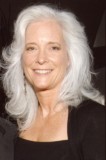 Kim Norris: President of Lung Cancer Foundation of America
Kim Norris: President of Lung Cancer Foundation of America
Previous Career:Management Consultant
College Major: Sociology
College: University of California in Santa Barbara (UCSB)
High School: Blair High School in Pasadena, CA
First Job Ever: Gift wrapping at I. Magnin department store
Worst Job Ever: Photocopying at a law firm
SNEAK PEEK (Full Episode + Transcript below)
|
RELATED VIDEOS |
Making A Career Change
Kim’s story is inspiring for anyone making a career change – whether you’re doing it at a young age like I did or you’re going through a career change after 40 like Kim did. In today’s career videos, Kim explains that after her husband’s death at age 47 of lung cancer, she lost her passion for her successful career in management consulting. Like me, she had no idea what would be next once she committed to change. Networking, transferring your skills and making your own luck simply by going for it really help to open those doors to the new chapter. For Kim, this led to an interesting road that ultimately led to the birth of the Lung Cancer Foundation of America.
Make sure to watch the full interview below to see how a real-life successful career change can play out. Kim’s story of making a career change is timely because this month is Lung Cancer Awareness Month. If you haven’t already seen it, check out the interesting facts about lung cancer that I recently posted on the site. This is not the first video Kim and I have appeared in together – that video is all about lung cancer.
FULL INTERVIEW
For our Audio Podcast: Careers Out There on iTunes
TRANSCRIPT OF TODAY’S INTERVIEW
Lung Cancer Foundation of America President Kim Norris: Thank you Marc. I’m happy to be here.
Careers Out There Host Marc Luber: Definitely. Thanks for being here. So Kim, today you run the Lung Cancer Foundation of America. This November is
Lung Cancer Awareness Month. We just did a video about that on the site. Tell us, what is Lung Cancer Foundation of America?
Lung Cancer Foundation of America President Kim Norris: Lung Cancer Foundation of America was started by two lung cancer survivors and myself, a lung cancer widow, about 3 years ago. The purpose of Lung Cancer Foundation of America is to raise money and awareness for research for lung cancer.
Host Marc Luber: Excellent. And how are things going?
Kim Norris: Great. It’s a challenge, it’s interesting, it’s like starting a business from scratch. No difference. It’s marketing, marketing, marketing and all those business skills you have I just find I’m applying them to starting this foundation. It’s a challenge, it’s exciting, I’m learning new things every day and it feels good cause it feels like we’re making a difference.
Luber: Yeah, that’s the greatest part! In this video that I did for Lung Cancer Awareness Month, I mentioned how lung cancer is actually the #1 cancer killer and one of the most under-researched, under-funded cancers. That’s the case, right?
Kim: Absolutely. So lung cancer is 30% of our cancer mortality and it kills more than breast, prostate, colon, kidney, liver and melanoma cancers combined. Most people don’t know that and unfortunately, people just assume it’s taken care of and funded and it’s not. It’s one of the least funded cancers, especially in relation to its impact on public health.
Luber: And for those that think it only strikes smokers, that’s not the case.
Kim: It’s not the case. As a matter of fact, here’s a statistic that surprises most people – 60% of new diagnoses is in non-smokers. That’s a combination of people that have never smoked a day in their lives and people that are former smokers but many who have quit, maybe 10, 20, even 30 years ago. And they’re just now being detected with lung cancer.
Luber: That was my mom’s case. She had quit over 20 years earlier and it nailed her. So….Let’s get to your career change story because so many people are facing adversity today because the economy has, as we know, taken a big hit, and a lot of people are in hard times and you were really able to reinvent yourself. Talk to us about what you did as a career before you got into this cancer stuff.
Kim: Before I got into the cancer stuff, I was in the world of consulting. I was a very successful consultant. I traveled the world working with CEOs and senior team members of Fortune 100 companies. I specifically worked on strategic implementation, leadership development, executive coaching and culture change. Loved it. It was interesting, it was exciting and I feel that I was able to help many of the companies that we were working with.
Luber: And then after that, while you were still in the heart of your career, your husband was struck by cancer.
Kim: Correct. As a matter of fact, when we found out, I was living part-time in London working with a client over there and when we found out that it was diagnosed at the age of 45 with stage 4 lung cancer, we were totally shocked and amazed. Basically I put my entire career on hold to be with him for the next 2 years while we fought this battle.
Luber: Wow. And then after he passed away, what happened?
Kim: After he passed away, I actually decided it was time to get back, kick my career back into gear and go back with the consulting firm I had been working for and go back to the things that I loved doing in consulting. I did that. I lasted maybe 2 years. What I discovered, I would be sitting there in some of these meetings with these CEOs and CFOs and whoever, and I realized that if I listened to them talk one more minute about how much money they made or who said what to who, that I was gonna reach over and just slap them! I just realized I could not be as effective as I used to be – and in fact that they hadn’t changed, I had changed. Given what I had gone through in my life, my priorities just completely shifted.
Luber: So how did you deal with that? What did you do to embrace the change?
Kim: Well actually I was lucky. I kind of was always talking to people, but I had gotten a call from UCLA from their lung cancer program. And they asked me if I would join them as a volunteer but as their lung SPORE patient advocate.
Luber: And what does that mean? What is a lung SPORE?
Kim: The SPORE program is a National Cancer Institute, NCI-funded program and it stands for Specialized Program of Research Excellence. And the SPORE program is there to enhance what they call translational research. To get research from the laboratory to the bedside to the patient as soon as possible. And UCLA was a part of this program, so I thought “well, why not – I’ll go see what it’s about”. And through that program, I ended up in Baltimore, I ended up meeting many of the top leadership at the NCI, I ended up meeting all the top lung cancer researchers in the country, I ended up connecting with other lung cancer advocates and advocates from other cancer organs sites, learning much from them, I spent quite a bit of time in Washington D.C. meeting with senators and congressmen trying to convince them that lung cancer was under-funded and under-researched. So it really opened a lot of very interesting doors for me and allowed me to network and meet a lot of very interesting people.
Luber: So you didn’t come out of this whole experience leaving consulting with a goal of saying, “I’m going to dive in and change the lung cancer world,” you were open to opportunities in general?
Kim: I had no idea what I was going to do. But yes, I was just open to opportunities. This phone call that I got – I just happened to say “oh well OK why not – let me go see what that’s about”. It’s kind of like all these doors would start opening and I would just walk through them having no idea necessarily where they would lead. But willing to walk through and see where they would take me.
Luber: But you went for it! We talk about this on the site a lot – it’s Make Your Own Luck. You know – you really make your own luck – you put yourself out there and things can happen! They don’t necessarily happen – but if you don’t put yourself out there, they’re not gonna happen.
Kim: Yeah! I mean it’s not like I grew up thinking, “oh – I’m going to start a lung cancer foundation when I grow up!” I had no idea that was gonna happen. But one, life kind of throws things at you, and you have to adapt to it and adjust and then when you don’t know what you’re gonna do next, I think a big part of it is just being open and flexible and exploring and as those opportunities come to you, being willing to explore them – not making judgments right away whether they’re the right thing or not – but going ahead and explore them and see where they will take you and where they lead.
Luber: That’s great. So now with the SPORE program, you were a volunteer but you were being exposed to all of these different people, all these different opportunities, so you could have gone for several different kinds of employment opportunities for yourself, right?
Kim: Absolutely. I mean I could have gone for a paid opportunity, many different opportunities, that I never would have guessed I would be doing or that I could have been. And really what I was doing was taking all those consulting skills I had developed over the years and now applying them to this whole new world. And actually many, many doors opened for me – it was just me deciding and choosing which door I wanted to walk through.
Luber: OK, so for our red magic marker moment for where everyone should get out their red magic markers and write down our 3 key points here – we’ve got make your own luck, we’ve got transferring your skills and we’ve got networking! Right?
Kim: Absolutely. All 3 of those were true.
Luber: Those were all key to your reinvention of your self and your career path.
Kim: Right. And to this day as I’m moving forward and now that I’ve started the Lung Cancer Foundation of America, I still don’t know whether it’s going to go away tomorrow but I know that I’m enjoying it, I feel like I’m making a difference, and I’m OK not knowing what the next step is….but being fluid enough to allow it to see where it goes.
Luber: That’s great. We should make it clear for everybody. You were not in a situation where you needed to earn an income, so you were able to do these things and be a volunteer with the SPORE program and then start a non-profit. But other people could do like you did, go that SPORE route and then use those other avenues that were opening up and grabbing one of those employment opportunities and getting a job.
Kim: Absolutely. I could have grabbed on to one of the for-pay opportunities and I could’ve headed in that direction. In my particular case, I didn’t need to and I kind of wanted to go this direction and I was fortunate enough to be able to do that.
Luber: Yeah, that’s great. And situation’s almost like people who go back and take an internship in a sense, in order to learn new skills, meet new people and get a whole new career started. That’s kind of like what the SPORE situation was.
Kim: Absolutely. It was. It’s like not going back to school but taking an intern position, see where it’s going, see where it’s learning. I know, now that I’ve started Lung Cancer Foundation of America, if I wanted to, I could absolutely go get a paid job now heading up any kind of foundation or non-profit. I never would’ve guessed that 10 years ago that I would be doing something like that. I now know that I have the skill sets and if I wanted I could go for it.
Luber: So all that stuff you learned from the SPORE program, all those people you met, you were able to pull it together and launch this non-profit to help fight lung cancer.
Kim: Absolutely. And I now have these wonderful connections of people all across the country. Again, from the research world I actually sit in many of the lung cancer research meetings with the top researchers. I’m not gonna tell you I understand a lot of what they talk about but I’m learning things, I know they come to me a lot of times asking me to help on various things. Meeting with other advocates from other organ sides and of course getting involved with the NCI, I’ve sat in on many panels for the NCI…so it’s opened many, many doors that have been interesting and challenging.
Luber; Well it’s a great story, it’s inspirational for other people who want to go through a career change – or need to go through a career change. You can reinvent yourself and make good things happen. . I love what you’re doing. Tell everybody how can they give money to the Lung Cancer Foundation of America and support the fight to raise money for research?
Kim: Yeah, so if you make a donation to Lung Cancer Foundation of America, the money will go towards funding research for the early detection and treatment of lung cancer. You can go to our website, which is www.lcfamerica.org and make a donation on line. It’s a secure donation. And again, it would be greatly needed and appreciated.
Luber: That’s great. We’ll put the link on the site too so that everybody could find it. And you guys – please leave your feedback in the Comments. Let us k now what else can we tell you about this topic? Let us know – we’ll be here to help you. Kim, thanks for making the world a better place! And thanks for sharing your time with us today.
Kim: Thank you marc.
Luber: Alright you guys, thanks for watching – really appreciate it. Take care. I’m Marc Luber, look forward to seeing you again soon, bye-bye.
(C) 2010 Careers Out There
RELATED POSTS
Establishing a Non-Profit Organization (Interview)
Interesting Facts About Lung Cancer (Video)
Non-Profit Management: Careers That Make A Difference (Interview)



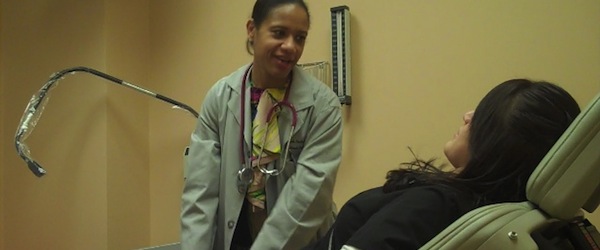
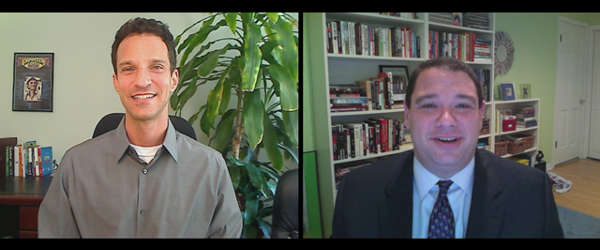
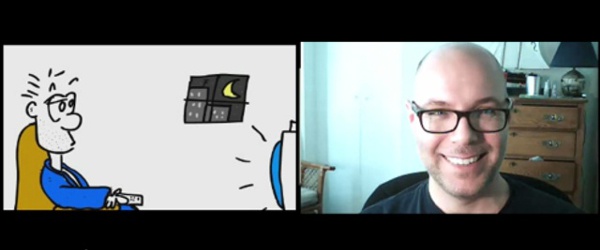
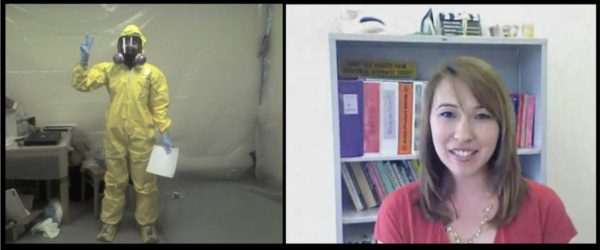
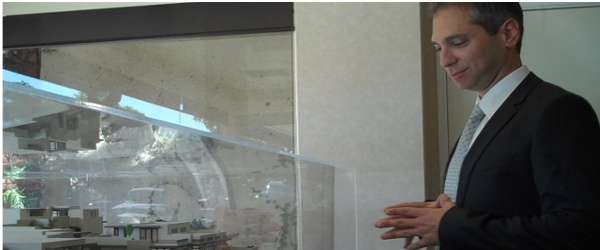
Great topic to share, intro video and writeup. I look forward to watching more. Thanks for this, Marc.
Thanks for the feedback Rachael!
Great Post!
Thanks for share video..
Great interview. I really learned a lot. I love this website. I’m contemplating a career change and have been conducting research. I’m learning so much here.
Hey Anita – thanks for the comment – your feedback is definitely appreciated. I’m glad we can be of help. Please tell your friends about us – invite them over here!
Things really worked out well for Kim and I can see that taking a volunteer role was the right step for her, in making connections and being open to seeing where things went. I would love to make a career change, after teaching for nearly 25 years… I have wanted a move for a long time but have no idea what or how – a volunteer role would be a good interim stage but my mortgage in recession times leaves me tied at present… it’s frustrating.
Hi @disqus_pgyk62K7tT:disqus thanks for commenting. Don’t think of doing volunteer work as something you have to dive into full time. Start by doing it on the side. Take on some real responsibility for the organization and see how it goes. Choose an organization whose mission interests you – and if you’re doing it for connections, find an organization where you feel the connections you make will help lead you to where you want to go. Good luck!
Just found your site. Love it! Lots of very useful information for me, who’s on the verge of a career change. Your interview with Bev Weise on how to discover your strengths was excellent! So was your interview on non-profit management. I’m reading up a lot on the non-profit and advocacy sector as I would like to start a new career in this sector but I realized I will have to study first…what should I study?
Hi @disqus_6dbXw2N9cV:disqus – thanks for the great feedback! I appreciate it. Making a career change into the nonprofit world sounds great. People approach the nonprofit world from so many different angles. There’s really no 1 thing to study. People at nonprofits can be focused on event planning, marketing, fundraising, grant writing, etc. I’ve heard good things about a book called The Nimble Nonprofit, available on Amazon. Checking out some books like that could be a good place to start. Also, volunteering for some different organizations would be essential. You may want to try helping out a big organization and a small grassroots organization. This way you can experience a wide variety of approaches. Good luck!